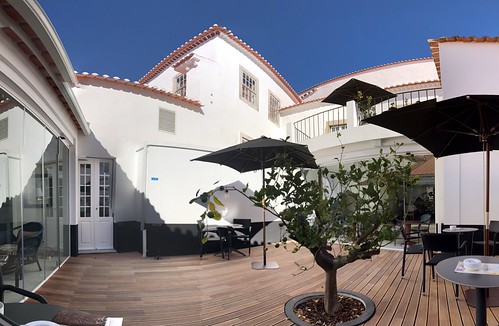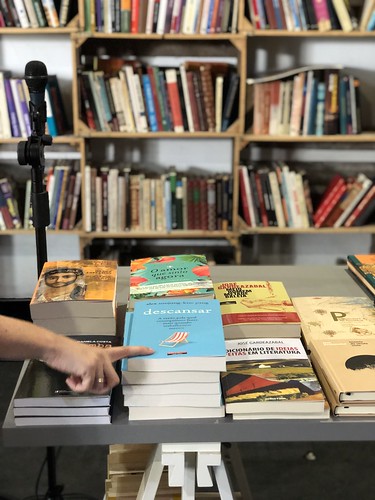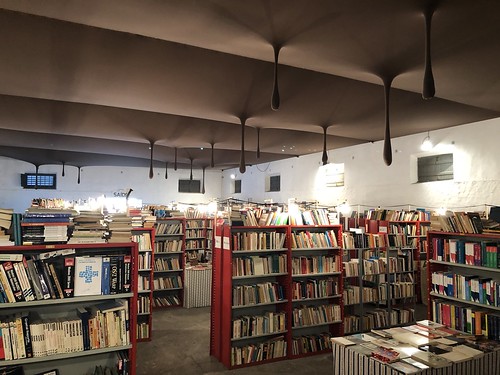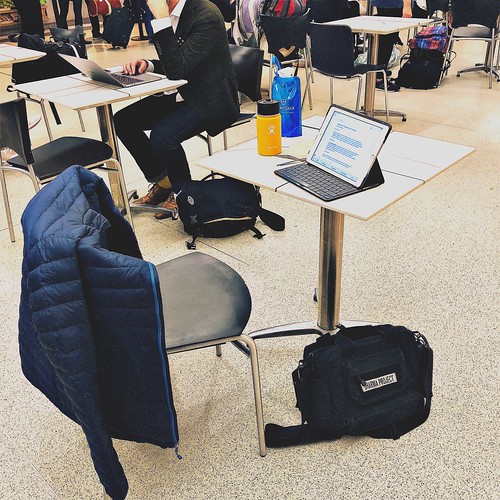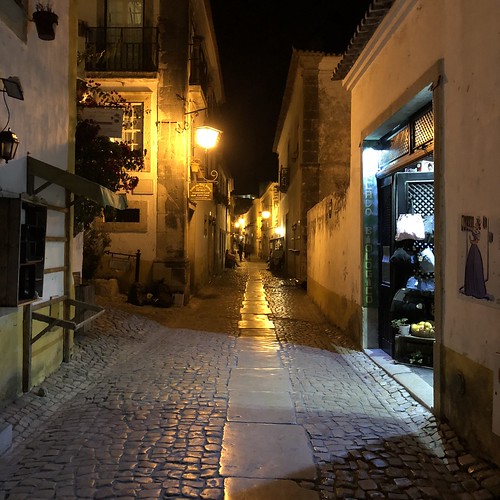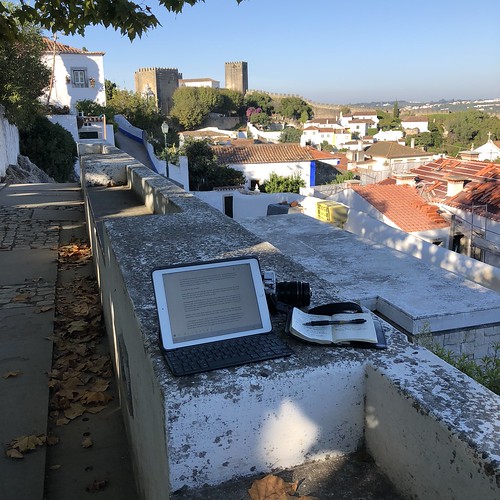I’m in the courtyard of the Pousada da Vila in Óbidos, Portugal. (Lots of pictures in my Flickr album.) I’ve been in here at the invitation of FOLIO, an annual literary festival, where I’ve been talking about REST. I also gave a talk at the local technology park, which was an interesting experience— very different kinds of audiences and locations.
This is just the beginning of my travels, though. I’m visiting Portugal, Scotland, Denmark, and England (in that order), giving three big talks, doing interviews or field visits at fourteen different places, and staying in eight— count them EIGHT— different hotels. But if I can get as much material gathered as I think I will during this trip, it’ll be worth it, and it’ll mean I can write the next book— or more important, FINISH the next book.
The trip will end with me speaking at the SOMNEX sleep show at the Old Truman Brewery in London on Sep 12-14. If you’re in town and interested in sleep, register here and use the promo code SPK40 at check-out— you’ll get 40% off the regular price.
These kinds of long trips make me think about how to apply deliberate rest to travel, and curious to know what ways others have found to make travel less stressful and harried. I find I can do some of my best thinking on planes, in the evenings after a long day and a walk, and that travel can stir up both useful old memories and generate new ideas.
(This bookstore, for example, reminds me a lot of the open-air book stalls that my dad used to drag me to in Rio in the evenings.)
There are people who have creative breakthroughs while away from home— the English scientist James Lovelock developed his Gaia hypothesis while on a series of visits to Caltech— or who use travel to acquire experiences that they draw upon in their work for years to come— this is why artists still do versions of the Grand Tour of Europe, and why cooks and fashion designers work in other countries.
For me, I’ve found that just as in my daily life, good prep work is essential for having a less stressful, more restful, trip.
I’ve recently gotten into the habit of using Google Calendar to record all my logistical stuff— confirmation numbers, directions about how to get from the airport to the hotel, notes about which bus to take to get to the next appointment, etc. (When I’m traveling on my own, I’m a terrible skinflint. Partly because I hate spending money, but also because I concluded a few years ago that I was essentially spending money to maintain ignorance: a taxi fare is the price of not having to know anything about the bus or subway system. But with Google Maps and apps like Citymapper, I can get direction for public transport most places I go. Likewise, I don’t eat out at restaurants all the time: I take more satisfaction from finding and navigating the local supermarket.)
Having all these directions, numbers, etc. in one place that’s easily accessible reduces the stress of getting around, and makes it a lot easier to retrieve information when I’m on the go.
Likewise, I’m super-careful about what I pack (though somehow I still managed to forget a couple small iPad accessories on this trip!). I don’t exactly aim to pack really light— for a weeks-long trip where you’re doing serious work and giving talks, that’s just not possible— but I do try to think through just what I need.
That also includes thinking about the things that’ll make me comfortable in multiple different hotels, of uncertain quality and with unknown amenities. For example, I discovered a couple years ago that taking a pair of sweatpants or shorts and a sweatshirt that I would just wear in the hotel improved my quality of life on the road immeasurably: being able to change from my regular clothes into them, declare that I’m done for the day, and spend a comfortable evening, is well worth the extra weight and space in the bag.
On the other hand, I’ve figured out how to travel without a laptop, which makes my bag several pounds lighter. (Thank you, iPad!)
All of this creates more space for rest, by reducing stress and the need to improvise or manage stuff on the road. Once I’m traveling, the key things I’ve discovered are: walk a lot for yourself, and don’t try to do TOO much.
I love taking walks after work (and being an oversized male, I can do that pretty much with impunity in the places I go): they’re great opportunities for both seeing the sights, and for doing some mind-wandering after work. I generally don’t have detailed routes and things I try to see on these walks (though I dislike getting lost), and more generally I don’t pack too much into my days: even in a new place I try to resist the urge to See It All Now, and try to remember that just spending time in a place is often just as rewarding as seeing the three most renowned altarpieces (or whatever) in the city.
I also try to build in some time to stop and gather my impressions. Though since it’s never a burden to stop at a cafe and write, this really isn’t a problem for me to schedule!
This afternoon I leave Portugal and fly to Glasgow, Scotland, where it’s currently about 50 degrees and raining. Any thoughts of Europe being some monolithic cultural and geographical entity go out the window when you go from the edge of the Mediterranean to the border of the North Sea.
